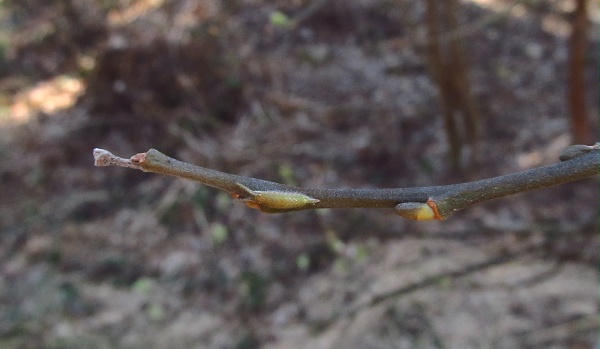Today's mission was to see if I could find a nettle tree butterfly freshly out of hibernation in North Italy. Nettle tree butterfly has always been a bit of a jinx for me and on the rare occasions I've seen one I've had no real chance to observe or photograph it. The forecast was good, so I left home at 6.50am on the bike, caught the train along the valley, a second train straight through the mountain below the Simplon Pass, and stepped out into watery Italian sunlight at Domodossola at 9.15am. Next, an hour or so of uphill grind to my chosen starting point (start at the top of the hill and work down - makes for a much more enjoyable day than doing it the other way round).
Cycling up the hill I crossed the path of several large tortoiseshells and a single Camberwell beauty. Both these species were prominent during the rest of the day. All were very active. The Camberwell beauties were cruising back and forth along the shrubby edge of a river and for the most part not stopping. The only ones that did stop were a couple - or rather, an amorous male and an apparently unwilling female. In the hope I might witness a mating I stood well back and videoed them from a distance, but she wanted none of it. Here is a clip of what I got. Apologies for the awful quality - I didn't want to risk moving any closer for fear of putting them up, so this is hand-held and maximum zoom:
http://www.youtube.com/watch?v=okWraWwLbNw[/video]
At the same site were small whites and green-veined whites:

A few male brimstones were roding along the same old tracks and one or two large tortoiseshells visited the sallow. But no nettle tree butterflies. I took a walk just a little higher, into some meadows, where small tortoiseshells and Queen of Spain fritillaries were common:

I also found a swallowtail and my first violet fritillary of the year up there:

But I hadn't come all the way into Italy for these, nice though they were!
Back at the river a holly blue looked to be the last new species I would get for the site so I set off down the hill again, looking for new places to explore.
Promisingly, a single nettle tree butterfly flew across the road as I zoomed down a steep part and although I screeched to a halt it was gone before I could catch my breath. I knew it was
celtis but decided not to count it anyway, as it had been such a poor, flight view and I wasn't 100% sure. A little further down I noticed some dense scrub that looked promising and stopped for a reccie. Two large tortoiseshells were competing very amusingly for the best place on a shiny, metal telegraph pole. The problem was, it was
so shiny they couldn't grip on it and continually made abortive landings until, by accident (they never learned) they landed on one of the metal bands around the pole.

Phew! Landed!

Another successful touchdown.
Nearby were a green hairstreak ...

... and this chequered blue:

This species is typically single-brooded in my part of Switzerland, emerging in mid-April, but in Italy it is normally double-brooded.
It posed for a long time:

Other species seen here were orange tip, comma and wood white. Then, finally, right next to the large tortoiseshells' telegraph pole, a nettle tree butterfly zoomed in and settled. I took a single, long-distance shot, just by pointing the camera in the right direction and clicking, without even knowing where the butterfly was, and then one of the large tortoiseshells took it out and that was that. Here is the proof, cropped hugely!

I did see it briefly show an interest in some cherry blossom as it flew off, but it didn't stop.
By now it was cooling and I needed to get back to Domodossola. On the way down the hill a second chequered blue caught my attention and was my last butterfly of the day.

14 species counts as a good March day but that single, awful snap of the nettle tree butterfly was what made it worthwhile trekking out to Italy. I'll probably do it again next weekend if the weather's good...
Guy















































